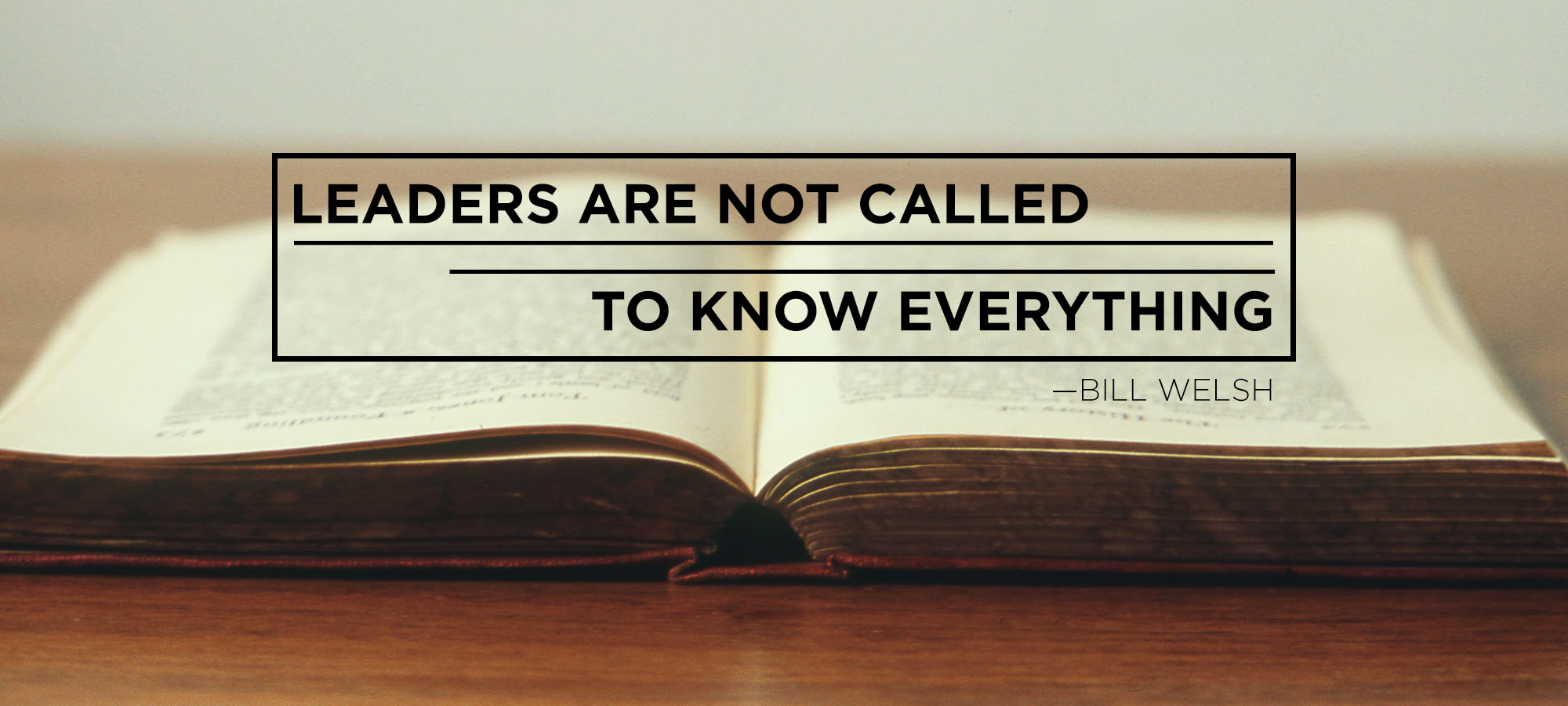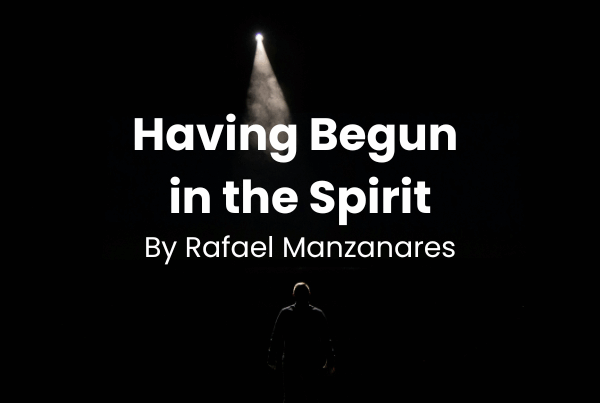
“Teach thy tongue to say ‘I do not know.’” – Maimonides; twelfth-century Rabbi
I was 18 years old and had been a follower of Jesus for nearly a year. I was thankful to be forgiven. I was also a sage with endless wisdom. At least I thought I was. I had answers for everything and everyone. I was the one-stop-shop for truth. That was then. This is now.
In my mid 20s I became pastor of a tiny church in the town of Desert Hot Springs, near Palm Springs, California. I had recently become acquainted with Jerry Cook, a pastor who quickly became somewhat of a mentor. Jerry’s style of teaching was casual, inviting and easy to listen to and learn from. However, it was Jerry’s humility that had the most profound impact on me. I was eager to do well.
I wanted to preach well, lead well and have all the answers for those deep Bible and life questions coming my way.
Leaders are expected to have answers. I desperately wanted to “know it all.” I was convinced that my friend Jerry actually had all the answers. I wrote him often, asking for wisdom on everything from family to friends, preaching to counseling and all things pertaining to church leadership. His answers were always thoughtful and concise. Don’t you love concise? However, one of the most helpful things I learned from Jerry was found in the title of one of his books. His best book, Love, Acceptance and Forgiveness, is a classic work addressing the all-important theme of what a church really is. But Jerry’s best title was from a different book; A Few Things I’ve Learned Since I Knew It All. I smile every time I see it on my bookshelf. My sensei, rabbi, mentor … expert was actually admitting to limited knowledge. What a welcomed game-changer for me!
Perhaps one of the most important thresholds in life is the one we cross the day we discover there are countless things we will never understand.
There are, as King David discovered, “great matters, too profound” for us all. Let’s face it; none of us will live long enough to know everything about everything. I might be an expert in one field, but in other fields, quite honestly, I am a novice or a dunce. Let’s get used to it; there is no shame in admitting ignorance.
Here’s David telling himself, “Calm down, Einstein, you don’t know as much as you think you know.” Thank you, David! I can finally remove my “Wiseman Cap” and take the far more appropriate seat of a student, disciple and seeker, even as a Christian leader.
This is now! And now, I readily admit to having a long list of questions about life, God, ministry, the Bible and ME. That’s right. I don’t always understand myself. Here are a few persistent questions that still baffle me:
• Why do I so easily fall into discouragement?
• How can I doubt God’s promised love, faithfulness, patience and mercy toward me?
• Why does God allow so much horror, terror and suffering?
• How can I know so much about marriage and yet fail to love the lovely woman God has allowed me to do life with for 43.5 years?
As Rabbi Maimonides told his young disciples 900 years ago, “I’ve learned to teach my tongue to say I do not know.” I will continue to study, inquire and hopefully discover deeper levels of understanding to life’s biggest questions. I will continue to stand upon what I know. After more than 45 years of walking with Jesus and studying God’s Word, there are vital, significant truths that strengthen me in my journey.
• I know what David knew 3000 years ago, that our “hope is in the LORD now and forever” (Psalm 131:3).
• I know that Jesus’ words are a firm foundation to build a life upon (Matthew 7:24-25).
• I know God will sustain me as I travel through what I don’t understand and keep me in perfect peace as my mind is fixed on Him (Isaiah 26:3).
Although leaders are often expected to have all the answers, I find it a relief to admit that I don’t.
In fact, I actually hope that those I lead learn from my admission of possessing less than full knowledge of all things eternal. Perhaps they too have moments where they feel they’re in over their heads; a feeling I encounter regularly. There is no shame in that admission. I suppose there should even be a thrill at that point, knowing that God will come through in my weakness, just as He has promised (2 Corinthians 12:8-10).
This isn’t an excuse for spiritual laziness. We can’t abandon our search for solutions to the endless challenges and multiple crisis of life. Psalm 131 is not the song from a theological sluggard but of a good king who refused to speak beyond his level of knowledge and experience and was actually content not having to know it all. David realized that some things were indeed “beyond his royal pay grade.” Any man or woman “after God’s own heart” is likewise reassured, knowing that God knows it all.
May we, as David did, teach our tongue to say, “I do not know.” We will come to the same peaceful, calm, refuge that David found; the one Jesus promised on the night He was betrayed when He told His friends, “Don’t let your hearts be troubled. Trust in God, and trust in Me.” The answer to the fear of the unknown is simple faith in God, the only One who knows the unknown, the one Who really does know it all.
So, what don’t you know? Name it. Then take it to God and rest calmly in Him. And if you get pressed for a quick answer, just smile and say, “I do not know, but let’s ask the One who does.”






